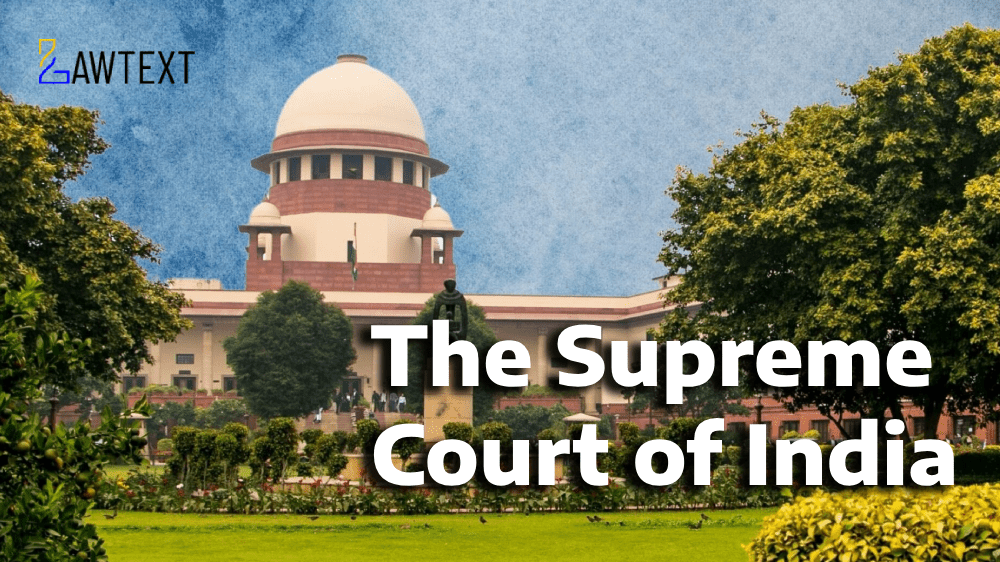Supreme Court Grants Bail to Appellant in Money Laundering Case Amidst Delay in Trial. "Extended Pre-Trial Detention Raises Article 21 Concerns Over Right to Liberty and Speedy Trial."

CASE NOTE & SUMMARY
The Supreme Court case of V. Senthil Balaji vs. The Deputy Director, Directorate of Enforcement, the Court granted bail to the appellant, V. Senthil Balaji, after he had been in custody for more than 15 months. The case revolved around allegations of money laundering under the Prevention of Money Laundering Act (PMLA) based on predicate offenses under the Indian Penal Code and the Prevention of Corruption Act. Despite strong evidence presented by the Enforcement Directorate (ED), the Court acknowledged that the trial for the scheduled offenses and PMLA could take several years due to the large number of accused and witnesses. The Court invoked Article 21 of the Constitution, emphasizing the right to a speedy trial and liberty, especially when trials are likely to be significantly delayed.
Factual Background:
- Para 1-4:
- V. Senthil Balaji, former Transport Minister of Tamil Nadu, was arrested on allegations of corruption and money laundering under Section 3 and 4 of the PMLA. He was accused of receiving large sums of money in exchange for government jobs.
- Several FIRs were lodged against him, leading to the involvement of the ED. A complaint was filed by the ED after a forensic analysis revealed incriminating evidence in electronic documents.
Legal Submissions:
- Para 5-7:
- The defense claimed that the evidence from the ED was not reliable, particularly the analysis of a pen drive file (CS AC). They argued that the trial would take years, given the large number of witnesses and accused.
- The ED countered by asserting the gravity of the offense, claiming Rs. 67.74 crores were collected illegally, with more than Rs. 1.34 crore deposited in Balaji’s bank account.
Court's Consideration:
- Para 8-18:
- The Court noted the extensive delay in proceedings and the involvement of over 2000 accused in the scheduled offenses. It stated that the trial could take up to five years due to the scale of the investigation.
- It acknowledged the constitutional right to a speedy trial under Article 21, citing previous cases where prolonged pre-trial detention was deemed excessive.
Bail Conditions & Legal Precedents:
- Para 19-32:
- The Court granted bail based on the prolonged delay in trial, subject to stringent conditions like attendance at the ED office and surrendering his passport.
- Precedents, such as Manish Sisodia and K.A. Najeeb, were cited, highlighting that extended incarceration without trial violates fundamental rights, especially where the trial is unlikely to conclude in a reasonable time.
Acts and Sections Discussed:
- Prevention of Money Laundering Act, 2002 (PMLA):
- Section 3: Defines the offense of money laundering.
- Section 4: Provides for punishment for money laundering.
- Indian Penal Code (IPC):
- Sections 120B, 419, 420, 467, 471: Criminal conspiracy, cheating, forgery, etc.
- Prevention of Corruption Act, 1988:
- Sections 7, 12, 13(2) read with 13(1)(d): Related to public servants accepting illegal gratification.
Ratio Decidendi:
The Supreme Court's decision to grant bail rested on two major grounds:
-
Right to Speedy Trial: The Court emphasized that the prolonged detention of more than 15 months without a foreseeable conclusion to the trial violated the appellant's fundamental rights under Article 21 of the Constitution.
-
Judicial Precedents: The Court reiterated that bail is the rule and jail is the exception, especially when the trial is delayed and there is no immediate risk of the accused fleeing or tampering with evidence.
Subjects:
Bail, Prevention of Money Laundering Act, Right to Speedy Trial
PMLA, Money Laundering, Constitutional Rights, Article 21, Corruption.
ISSUE OF CONSIDERATION
V. Senthil Balaji Versus The Deputy Director, Directorate of Enforcement
Citation: 2024 LawText (SC) (9) 261
Case Number: CRIMINAL APPEAL NO.4011 OF 2024 (Arising out of Special Leave Petition (Crl.) No. 3986 of 2024)
Date of Decision: 2024-09-26
Case Title: V. Senthil Balaji Versus The Deputy Director, Directorate of Enforcement
Before Judge: (Abhay S Oka J. , Augustine George Masih J. )
Appellant: V. Senthil Balaji
Respondent: The Deputy Director, Directorate of Enforcement

